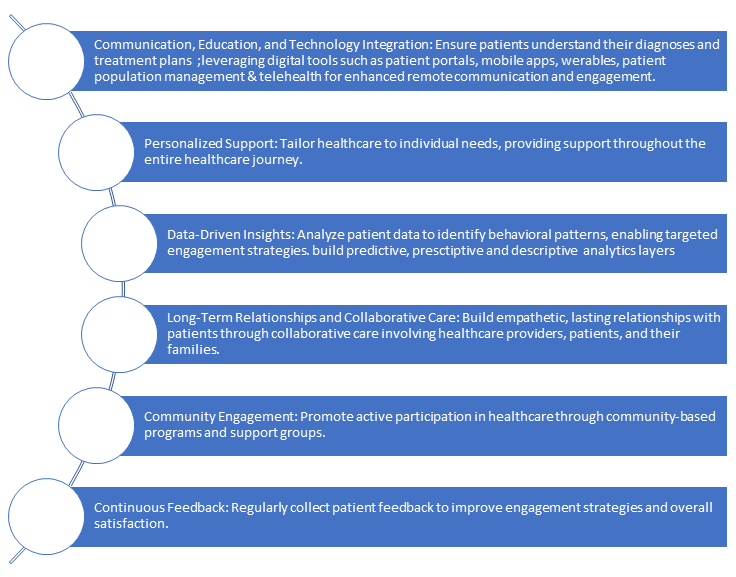Written by : Guest
May 5, 2024

Image Source: Special Arrangement
Patient engagement is a critical aspect of delivering high-quality care, promoting better health outcomes, and enhancing patient satisfaction. It encompasses a range of practices and strategies that encourage patients to participate actively in their healthcare and clinical trials.
This guide discusses patient engagement issues, frameworks, and strategies, while also exploring the impact of advanced technologies on patient engagement.
Patient life cycle management is the comprehensive approach to keeping patients at the center, from diagnosis to treatment and beyond.
This involves listening to the patient's voice, mapping their journey, and fostering partnerships that prioritize patient needs. In clinical trials, engaging patients early on is critical; focus on addressing barriers to participation and improving accessibility, including the use of tele-trials for those in remote areas.
Mapping the patient journey offers insights into their experiences, revealing opportunities to enhance the system.


Patient engagement plays a significant role in healthcare, clinical trials, and real-world evidence studies.
· Real-World Data Collection
Wearables, sensors, and other connected devices provide valuable real-world data that can improve clinical trial outcomes and offer insights into patient behaviors.
· Improved Compliance
Engaged patients are more likely to adhere to trial protocols, reducing dropout rates and enhancing trial reliability.
· eConsent and eCOA
Electronic consent and electronic clinical outcome assessments streamline clinical trial processes, making it easier for patients to participate.
·Path Towards Wellness
A focus on wellness and preventive care can lead to better long-term outcomes, as engaged patients are more likely to adopt healthy lifestyle habits.

A robust patient engagement strategy is foundational to achieving improved healthcare outcomes. By addressing patient engagement issues, implementing a comprehensive framework, and embracing advanced technologies, healthcare providers can create a patient-centric environment that fosters long-term relationships, enhances clinical trial outcomes, and promotes overall health and wellness. Ultimately, a successful strategy prioritizes personalized, responsive care and empowers patients to take an active role in their healthcare journey.